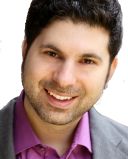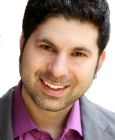Sleep
Take that Nap! It May Boost Your Learning Capacity Among Other Good Things.
Why sleeping is good for you
Posted February 22, 2010

Anyone who knows me knows that my favorite pastime is napping. In College, I would come back to my dorm room, and like clockwork, would take a nap. My best friend in England, who got quite a kick out of my passion for napping, once tried to persuade me to drink a cup of tea after lunch instead of taking my customary nap. I really tried, but I soon gave in to my nap cravings. Sometimes I feel like I really need to re-charge my brain batteries.
Well, now science is on my side. I just love this new study, which was presented by Matthew Walker, assistant professor at UC Berkeley, at the annual meeting of the American Association of the Advancement of Science (AAAS) conference in San Diego this past Sunday.
Walker and his colleagues Bryce A. Mander and Sangeetha Santhanam split up a batch of 39 healthy young adults into two groups. One group napped, the other did not.
At noon, both groups took a learning task thought to recruit the hippocampus. The hippocampus is a region of the brain known to play an important role in the formation of new memories. Over the past few years, various researchers have found that fact-based memories are temporarily stored in the hippocampus before other regions of the brain can operate on the content, especially the regions of the brain responsible for higher-order reasoning and thinking. At this point in the experiment, both groups showed similar levels of performance.

Then, at 2pm, the nap group took a 90-minute nap while the no-nap group stayed awake, presumably watching the nap group enjoying their nap. After nap-time both groups then took more learning tests. The nappers did better on the tasks than those who stayed awake, demonstrating their higher capacity to learn.
The researchers interpret these findings as supporting their hypothesis that a major function of sleep is to clear away all the clutter stored in the hippocampus to make room for new information. In the words of Walker:
"It's as though the e-mail inbox in your hippocampus is full and, until you sleep and clear out those fact e-mails, you're not going to receive any more mail. It's just going to bounce until you sleep and move it into another folder."
Walker also likens the brain to a sponge:
"Sleep is critical for learning. It's like the brain is a sponge. Sleep wrings certain key regions out so you're able to soak up new information the next day."
Short mid-day naps may be good because they get you into a particularly beneficial part of the sleep cycle. EEG studies (that measure the electrical activity of the brain) have shown that this memory-refreshing process occurs during Stage 2 non-REM sleep. We actually spend at least 50% of our sleeping time in this stage, suggesting an adaptive purpose for this stage of sleep:
"I can't imagine Mother Nature would have us spend 50 percent of the night going from one sleep stage to another for no reason. Sleep is sophisticated. It acts locally to give us what we need," says Walker.
 Now, what about that cup of tea? Was my friend in England right? His advice is usually spot-on, but this time he may have been misguided. Sara Mednick at the UC San Diego (and author of the book: Take a Nap! Change Your Life) divided her subjects into two groups: one group received 200 mg of caffeine and did not nap and the other group just took a nap. Then both groups underwent a battery of tasks, including measures of typing, and measures of memory recall, tapping into visual, verbal, and motor memory. She found that the day nappers did better on all the tasks than those who popped the caffeiene pill. "Of course, that's bad news for Starbucks," says Mednick. Mednick also notes: "Which would you rather be: wired or smart?"
Now, what about that cup of tea? Was my friend in England right? His advice is usually spot-on, but this time he may have been misguided. Sara Mednick at the UC San Diego (and author of the book: Take a Nap! Change Your Life) divided her subjects into two groups: one group received 200 mg of caffeine and did not nap and the other group just took a nap. Then both groups underwent a battery of tasks, including measures of typing, and measures of memory recall, tapping into visual, verbal, and motor memory. She found that the day nappers did better on all the tasks than those who popped the caffeiene pill. "Of course, that's bad news for Starbucks," says Mednick. Mednick also notes: "Which would you rather be: wired or smart?"
Mednick points out that the time during the day a person should nap varies depending on the person's age. She says that since teenagers and young adults have a slightly shifted sleep cycle, going to bed late and waking up early, their ideal napping window is in the afternoon, around 4p.m. The ideal napping window for adults, in contrast, is between 1 to 3 p.m., since adults usually sleep between 11 p.m. and midnight and wake up between 6.am. and 8 am.
Walker and his colleagues are also interested in the link between age and the function of sleep. They are now investigating whether the reduction of sleep as we age is associated with the well-replicated decrease in our ability to learn as we age. As noted in the official UC Berkeley University press release, this is fascinating research and could greatly improve our understanding of neurodegenerative conditions such as Alzheimer's disease.
Sleeping is Good for You
The Walker and colleagues study is one among a number that show that sleep, more generally, can be very beneficial for a wide range of positive outcomes. At UC Berkeley, both Walker's research group and Allison Harvey's group at the Sleep and Psychological Disorder Laboratory have found that getting a good amount of sleep at night is tied to a better immune system, metabolic control, memory, learning, and emotional functioning. Most of us are familiar with the often cited finding that pulling an all-nighter the night before an exam can decrease the ability to remember the information by roughly 40 percent, but it's really cool to see all these other benefits of sleep.
 I can relate. Sometimes when I am learning a new tune on my piano, I get frustrated in the moment when I think I am no longer making progress. Sometimes when I try to tackle the song the next day after a good night's sleep, I realize I have learnt the whole thing the night before! In fact, research does show that people have 20 to 30 percent better recall of what they learned during a piano lesson if they are tested after a full eight hours of sleep than if they are tested right after the piano lesson.
I can relate. Sometimes when I am learning a new tune on my piano, I get frustrated in the moment when I think I am no longer making progress. Sometimes when I try to tackle the song the next day after a good night's sleep, I realize I have learnt the whole thing the night before! In fact, research does show that people have 20 to 30 percent better recall of what they learned during a piano lesson if they are tested after a full eight hours of sleep than if they are tested right after the piano lesson.
There are also benefits of sleep for creativity. Multiple threads of research support this notion, and the link between sleeping and creativity has been noted by prominent researchers such as Jerome Singer as well as Walker:
"This starts to sound a lot like the basis for human creativity. The fusing of things that don't seem to have any connection. That's what sleep, particularly dreaming does. Like good cooking, when it comes to memory, it's not enough to chop up the ingredients and put them together. The brain needs time to let things marinate."
Sleeping may even have important affects on depression. Some researchers now believe that chronic sleep deprivation may lead to depression, rather than depression causing one to sleep less (which was what researchers used to think was the causal link). In one study, which I believe is still ongoing, Harvey's research group along with the Kasier Permanente Center for Health Research in Oregon recruited 60 middle and high school students to investigate whether more sleep can lower the risk factor for depression. In their study, the teens will report on their sleep habits for 12-weeks, undergoing 12 one-hour, once-a-week sessions of cognitive behavior therapy that will focus on sleep and mood patterns.
It's clear then that sleep is adaptive for many positive outcomes.
"We are getting close to understanding some of the functions of sleep, yet society still treats sleep like a luxury. We say, ‘When I have two weeks' vacation I'm going to allow myself to sleep eight hours.' But we would never say that about water or food. If there's something that gets shortchanged, it's always sleep," notes Walker.
 In fact, it turns out that people who take regular naps and get a good night's sleep may have the ability to learn twice as much as those who just get a good night's rest. This is all important research, especially in light of the fact that about 40% of Americans get less than 7 hours of shut-eye a night (teenagers are advised to sleep about 9 hours a night) and two-thirds of women report having difficulty falling asleep more than three nights a week. As Mednick notes: "We are a sleep-deprived nation." Mednick and other officials at UC San Diego even organized a "nap-in" last year during International Napping Day (don't you wish every day was International Napping Day?).
In fact, it turns out that people who take regular naps and get a good night's sleep may have the ability to learn twice as much as those who just get a good night's rest. This is all important research, especially in light of the fact that about 40% of Americans get less than 7 hours of shut-eye a night (teenagers are advised to sleep about 9 hours a night) and two-thirds of women report having difficulty falling asleep more than three nights a week. As Mednick notes: "We are a sleep-deprived nation." Mednick and other officials at UC San Diego even organized a "nap-in" last year during International Napping Day (don't you wish every day was International Napping Day?).
So, to all the napping haters out there, check out the research. But really, doesn't this research all really just confirm what mothers have been telling us all along? Walker thinks so:
"My research is not revolutionary, because your mother knew it all along.
© 2010 by Scott Barry Kaufman




